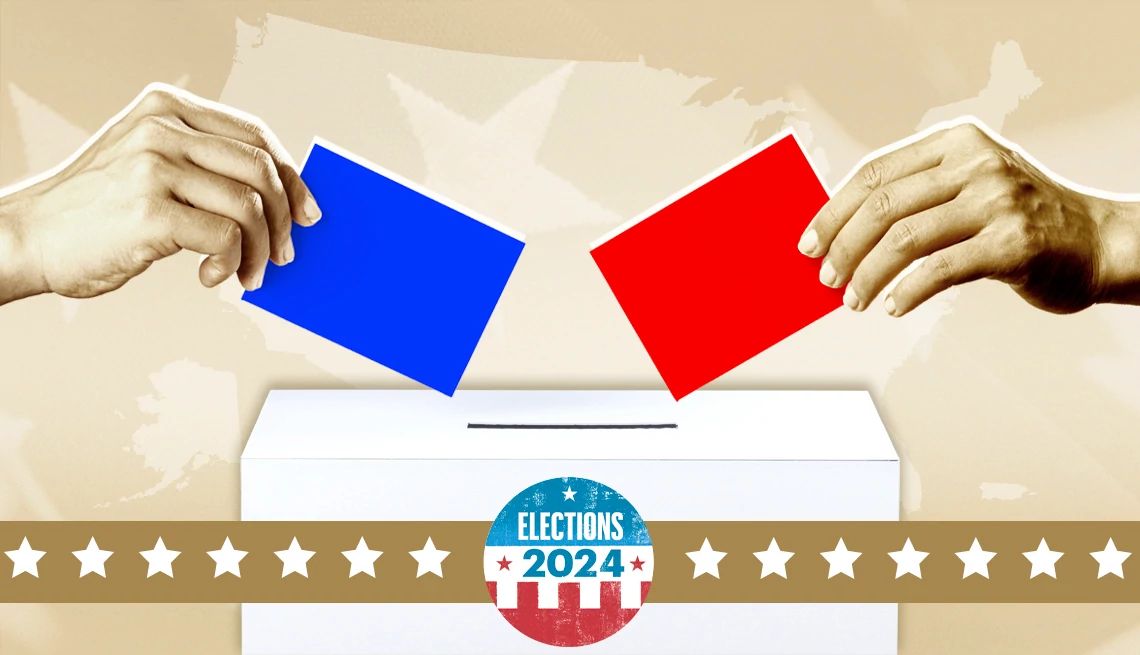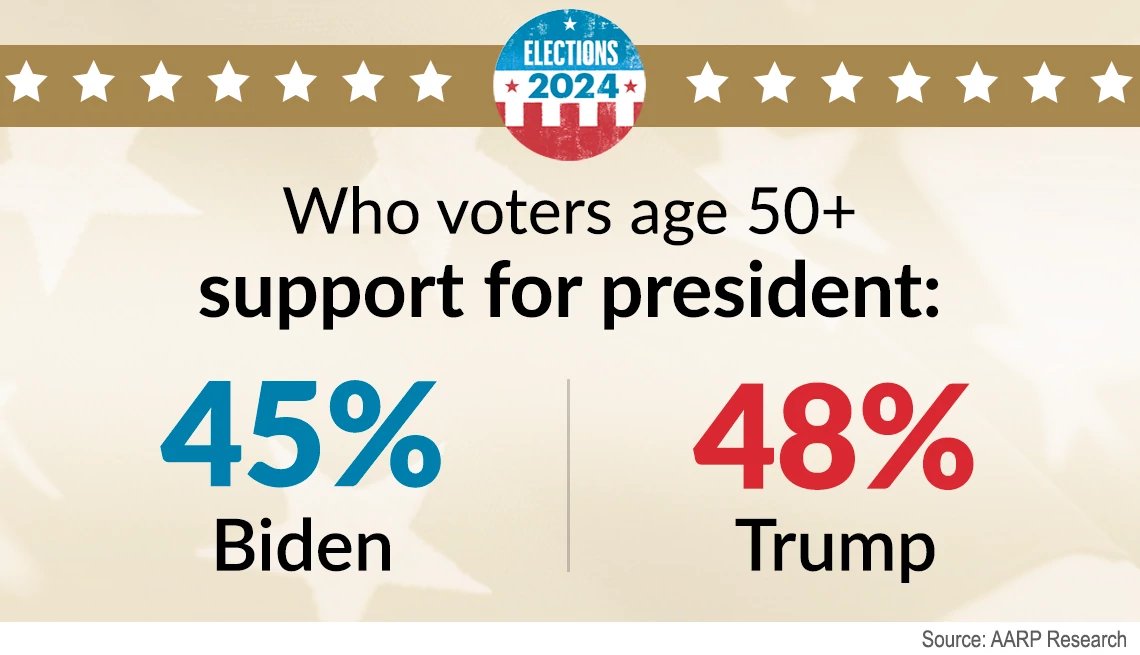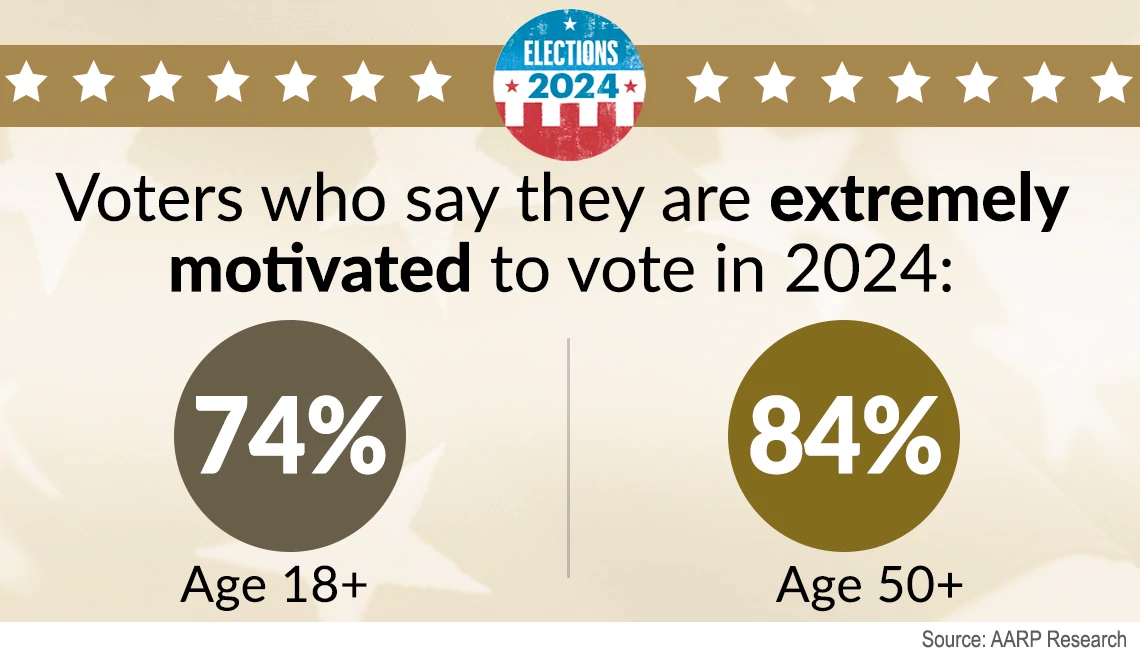AARP Hearing Center


More older voters in the country’s battleground congressional districts say they would cast a ballot for former President Donald Trump than for President Joe Biden, according to a new poll from AARP.
Forty-eight percent of voters age 50-plus living in those districts say they would support Trump, compared with 45 percent for Biden — a 3-percentage-point lead, according to the poll conducted by bipartisan team Fabrizio Ward and Impact Research.


Pollsters asked voters whom they would choose if the election were held today between Biden, a Democrat, and Trump, a Republican. Trump and Biden are virtually tied among voters of all ages, with 47 percent favoring Trump, compared with 45 percent for Biden, the poll shows. Trump’s 2-point lead is within the margin of error.
AARP commissioned a bipartisan team of pollsters to survey 2,324 likely voters in 44 of the most competitive U.S. House of Representatives districts in 22 states from June 3 to June 9. The survey has a margin of error of plus or minus 2.8 percentage points.
Biden holds a wide lead over Trump among Black voters 50 and older, with 82 percent saying they would vote for Biden compared with 10 percent for Trump. Among Hispanic voters in that age group, 53 percent favor Biden compared with 39 percent for Trump.
“Americans ages 50 and older are our nation’s most powerful voters — and they will be the deciders in November,” says Nancy LeaMond, AARP’s chief advocacy and engagement officer. “If candidates want to win, they should pay attention to the issues that matter to voters over age 50, from protecting Social Security to supporting family caregivers.”
Among all voters in a three-way race that includes independent candidate Robert F. Kennedy Jr., Trump holds a larger 5-point lead, earning 42 percent of the vote versus Biden’s 37 percent, with Kennedy polling at 11 percent. For voters 50-plus, 45 percent support Trump, 41 percent support Biden and 8 percent support Kennedy.
Voters also were polled on how each candidate performed or is performing as president. For Biden, 42 percent of voters 50-plus approve of what he is doing in office, while 56 percent disapprove. For Trump, 52 percent of voters 50-plus approve of what he did as president, versus 46 percent who disapprove.


































































More From AARP
AARP Poll: Trump Leads Biden Among Older Arizona Voters
Nine points separate the candidates among voters age 50-plus8 Things to Know About Election Disinformation and AI
Artificial intelligence spreads, amplifies falsehoodsHow Voting Laws Will Impact 2024 Elections
Some states have tightened their rules since 2020, but others have made it easier to cast a ballotRecommended for You